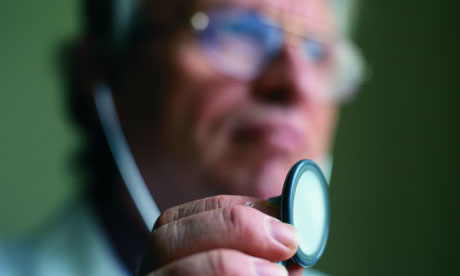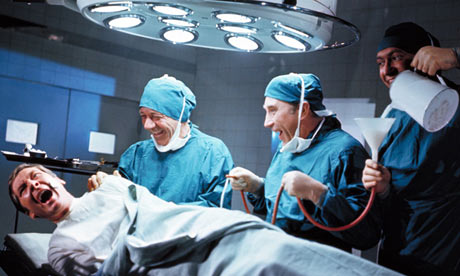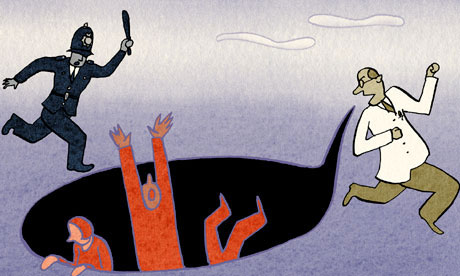Mary Dejevsky in The Independent
Within Britain, there is a widespread view – seriously dented neither by the MPs’ expenses saga nor by the newspaper phone-hacking scandal – that this is not a corrupt country. It might not be quite as squeaky clean as Scandinavia, but it is nothing like – let’s see, who shall we offend? – Italy or Spain. As for Russia or China, well, we can strut the moral high ground – can’t we? – certain of our superiority.
Incorruptibility is part of our national self-image. But we flatter and deceive ourselves. Over the past few weeks, The Independent has exposed private investigators who routinely break the law, digging for dirt on behalf of commercial clients. The techniques – phone hacking and “blagging” – are the same as those for which journalists have been hauled before the courts and pilloried by public opinion.
If there seems to be a slight edge to our reports, how could there not be? On present evidence, law enforcers would appear to take a dimmer view of journalists applying these illegal methods, or buying them in, than it does of business people and lawyers who do the same. That, at least, was the message from the Serious Organised Crime Agency, which initially instructed MPs not to name the companies commissioning such services on the grounds that it could “undermine their financial viability” by “tainting them with… criminality”. Yesterday, however, there was a change of heart and Soca supplied the Home Affairs Select Committee with a list of a list of 101 names of people and organisations who have hired private investigators. The committee’s chairman, Keith Vaz, is now deciding whether to publish them.
Strictly speaking, blagging – obtaining information by deceit – can succeed without a partner. The offence is all on one side: no money or favour changes hands. But this is not the only way in which information is obtained. As with journalists and the police or others who hold sensitive information, it is now known that money or favours have changed hands. And in these cases, those who sell are as culpable as those who buy. There has to be a market for the transaction to work.
The sellers might not see themselves as corrupt, merely as individuals exploiting an opportunity, or enjoying a perk of the job. That such practices may not always have been recognised as corrupt does not make them less so. It just means we are more adept than some of our neighbours at not calling things by their proper names. A gift for euphemism is something else that defines our national character.
If journalists and private investigators were the only ones under investigation, and the only commodity changing hands was information, we might just be able to file it away and argue that Britain has a very limited and very specific corruption problem. But this is not true, either. In banking, we have had the rigging of Libor, the key lending rate, by individual bank employees for personal gain. As corruption goes, this comes close to the top of any list because greed compromised a major pillar of the financial system – in a global financial centre which was built largely on its word being its bond.
A few steps further down we have claims of corrupt behaviour by British companies abroad. Only last week accusations were made against employees of a British company in China, GlaxoSmithKline. According to the Chinese, other pharmaceutical firms are also in the frame – for allegedly bribing doctors to prescribe their products. It is not, of course, that paying backhanders, or “doing as the natives do”, was unheard of in the operations of UK companies outside Britain. But the Bribery Act of 2010 made it expressly illegal, and it comes to something when it is the Chinese authorities doing the exposing and British companies that find themselves in the dock. The reputational damage flows only one way.
Again, it might be just possible to winkle out a “British” exception and claim that this sort of corruption reflects the malign influence of “foreigners” rather than any home-grown proclivity. But such complacency is challenged by the latest “global corruption barometer” compiled by Transparency International. Published earlier this month, its findings show not only that the perception of corruption in Britain has increased markedly over the past two years – not surprising, giving the prominence of the phone-hacking scandal – but that in the same period one person in 20 claims to have paid a bribe to a public official for services as diverse as health, justice and education.
A first instinct is, naturally, to question these conclusions. A second would be to surmise that those who admitted paying a bribe were at the margins – newcomers, perhaps or illegal migrants. But that would be too easy an escape. As with journalists and police, corruption is a transaction. There must be takers as well as givers. But I find it credible, too, because of a mini-brush of my own. When posted abroad more than 10 years ago, I checked that my husband, if he became non-resident, would have to pay privately for his (expensive) Parkinson’s medicine. The doctor, a locum, said yes, that was so. Then he paused, and – as I read it – implied, no more, that a deal could be struck. I left, but a possibility was there.
And this is where corruption begins. Not with GSK in China, but with crimes left unpunished, names left unnamed and the prosaic minutiae of daily needs debased. If the Serious Organised Crime Agency is telling MPs – our representatives – what we the public may and may not know for national commercial reasons, the UK is on a slipperly slope indeed.






 34 Comments
34 Comments 



